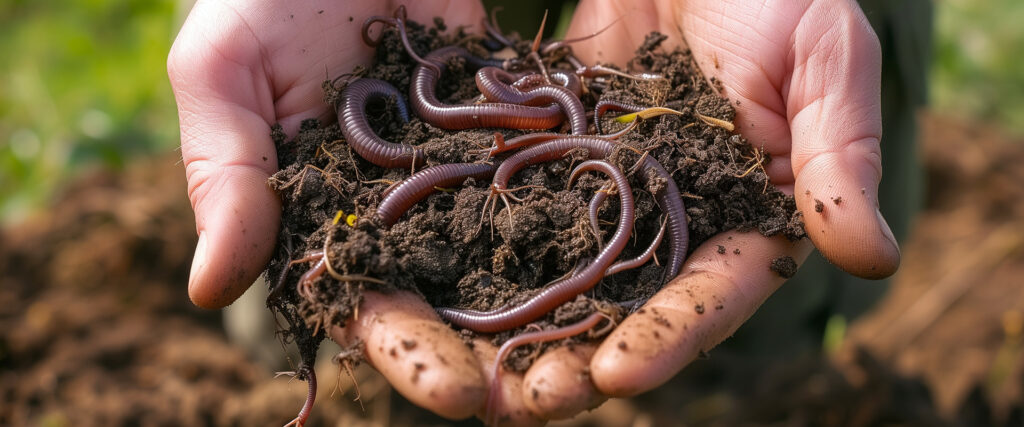Earthworms in decline

At the beginning of Godzilla (1998), Matthew Broderick’s character can be seen studying earthworms in the pouring rain before being shipped off to study something bigger. Day to day, these small invertebrates often go unnoticed hidden in the soil around us. They have a big impact on the environment around them with studies showing that they have a positive impact in the fight against climate change as they feed on microbes living in soil. These microbes ingest decaying matter and, as part of the digestive process, release carbon gases into the earth. When earthworms feast on these microbes, the process of decomposition releases less carbon than the microbes themselves. This is important because global warming causes soil temperatures to rise which stimulates the process of decay, releasing more carbon into the soil.
Another benefit of earthworms is that they mix and loosen soil which helps it drain and aerate, bringing nutrients to the surface. This movement also helps to make the soil fertile and helps prevent erosion and flooding. Research has shown that earthworms help clean land contaminated with large amounts of heavy metal such as zinc and lead, whilst other studies show how earthworms can speed up the restoration of degraded land in the tropics.
Ecosystem Services
Charles Darwin was the first person to recognise what earthworms were capable of. He first tested lime and ash and was shocked when he discovered how well earthworms absorbed the substances. He went as far as testing different foods on them and found they were not a fan of mint but enjoyed cabbage. He even serenaded them with a whistle, bassoon and piano. Darwin studied earthworms for a further 40 years and apologised to his readers on the subject stating worms may ”appear an insignificant one”. He even stated that worm conservation is much more important than the conservation of other animals once we take into account their provision of what we now call “ecosystem services”, which is crucial for human survival.
The Decline of the Earthworm
When it comes to the food chain, earthworms are high in protein and are a healthy food source for a number of animals such as birds, foxes and shrews. Earthworms are a crucial element to the overall health of soil and have the ability to remove any damaging man-made issues. However, latest studies show that they are in decline.
A research paper titled ‘Collation of a century of soil invertebrate abundance data suggests long-term declines in earthworms but not tipulids’, by Dr Ailidh Barnes, identifies that earthworms in Britain are declining by around 1.6% – 2.1% per year. The paper states that this is an equivalent to a “33% – 41% decline over 25 years”. As rightfully put by Dr Barnes, the leading author, this is “concerning”.
Another paper titled ‘Earthworms contribute significantly to global food production’ by Professor Fonte from the Department of Soil and Crop Sciences, Colorado State University, US found that “earthworms contribute to roughly 6.5% of global grain (maize, rice, wheat, barley) production and 2.3% of legume production, equivalent to over 140 million metric tons annually”. If earthworms were not providing this vital contribution to the ecosystem, this would be a loss equivalent to that of the annual grain production of Russia.
This decline was only noticed because other species such as the song thrush were declining, which prey on earthworms. It is still not clear why these earthworm numbers are declining. Professor Fonte believes the effects of pesticides and ploughing may be a cause. However, the field of soil biodiversity is understudied but the Soil Association has launched a ‘worm map’ for Britain which allows residents to hunt for worms and help better understand the soil. So, like Matthew Broderick’s character in Godzilla, you too can also study worms and contribute to hopefully a better future for them.
1 Dr Ailidh Barnes, Collation of a century of soil invertebrate abundance data suggests long-term declines in earthworms but not tipulids, 3 April 2023
2 Professor Fonte, Earthworms contribute significantly to global food production, 2023


